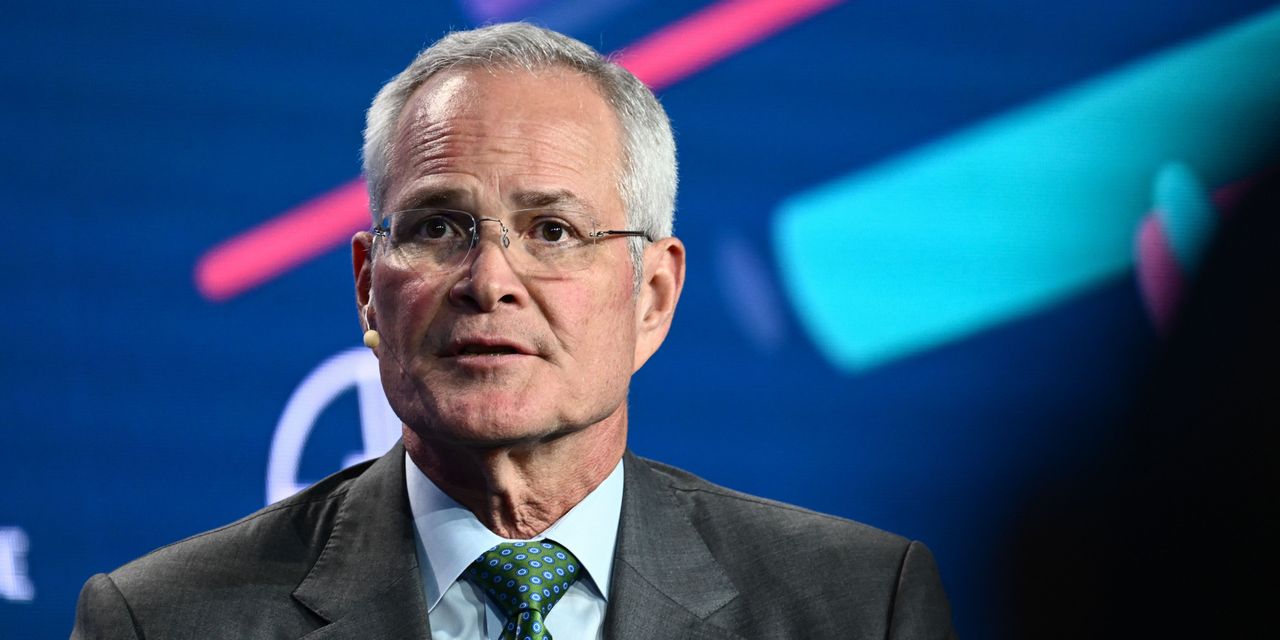LOS ANGELES—Climate change risk is real, but the world cannot tackle the challenge in isolation from all the other challenges such as energy poverty, says Exxon Mobil CEO Darren Woods at the Milken Institute’s 2023 Global Conference in Beverly Hills, Calif. “The solutions that we develop in advance have to address a multitude of these security issues,” he adds.
Joining Woods on stage was Democrat Sen. Joe Manchin of West Virginia, a state heavily reliant on the coal industry—one of the largest contributors to carbon emissions and global climate change. Like Woods, Manchin noted the importance of energy independence and security, especially as Russian President Vladimir Putin tries to weaponize energy supply in his war with Ukraine.
Manchin, chair of the the Senate Energy and Natural Resources Committee, recently made splashes in the news after announcing his intent to vote to repeal the Inflation Reduction Act——passed last August with huge incentives for the clean energy industry——if the Biden administration continues to use the bill to pursue a “radical climate agenda” and move away from fossil fuels.
He cited the soaring national debt as another concern for the implementation of the IRA, which, according to him, has expanded beyond “what’s wanted.”
Manchin has insisted the IRA was an “energy security bill,” rather than a clean-energy bill. He reiterated the position at the Milken Conference: “We’ve got the wrong problem statement. It started with making sure we were reducing emissions and mitigating the risk of climate change. That’s now translated into getting rid of fossil fuel.”
Both Woods and Manchin noted that the IRA’s support for climate-change initiatives are extremely important, but it should’t be limited to renewable energy alone. One of the solutions pushed by the fossil fuel industry is carbon capture and sequestration, a technology that traps CO2 from industrial processes and permanently stores them in rock formations underground.
Fossil fuel giants like Exxon have been under a lot of pressure to shift toward a lower-carbon business model. Expanding into renewable energy doesn’t make sense for Exxon, says Woods, because they’re very different lines of business. Instead, the firm can leverage its years of experience in carbon capture to make fossil fuel and other industrial partners cleaner.
Oil-and-gas companies have been trapping CO2 for decades to enhance their production, but the high costs has made the technology difficult to scale. The billions of dollars of incentives unleashed by the IRA would serve as a tremendous catalyst for the industry. Still, Woods and Manchin urged the government to accelerate its permitting process and cut regulatory red tapes.
“We are not going to ask [the government] to sustain the subsidy,” says Woods, “What we’re hoping is that the IRA catalyzes the effort to lower costs, so eventually the market pays and incentivizes businesses to reduce carbon. That’s the only way it’s going to work in the long run.”
Manchin echoed that, citing the dramatically lower costs of producing solar and wind power over the past decade fueled by public funding support.
“The reason why oil and gas plays such an important role in today’s economy is because it’s a very affordable and extremely reliable source of energy,” says Woods, “What we’re trying to do is to find something that competes with that availability and affordability.”
Exxon is also actively working on direct air capture, says Woods. He admits that there are still hurdles to clear, but if the technology proves scalable, it would be the “holy grail” of environmental solutions. “The best answer to reducing emissions is to capture the CO2 and not replace the existing infrastructure,” says Woods.
More investment in carbon capture would be good news for West Virginia and its coal industry as well, which could survive longer instead of being phased out. The state is now trying to commercialize carbon capture and sequestration for its coal-fired power plants, says Manchin: “You cannot eliminate your way to a cleaner environment, you have to innovate.”
Write to Evie Liu at [email protected]
Read the full article here




